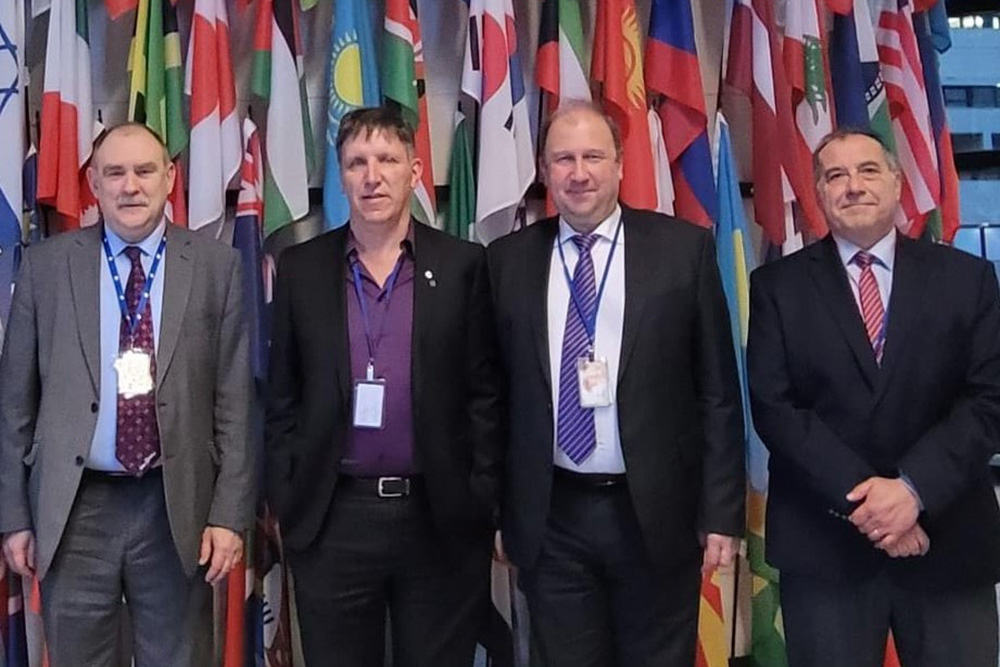Green light: Ontario Tech University supports launch of international nuclear-hydrogen collaboration
University helping explore enabling the deployment of nuclear-hydrogen production plants, with net-zero carbon emission
February 22, 2023

In late January 2023, Ontario Tech’s Office of the Vice-President, Research and Innovation (VPRI) joined representatives from 15 countries and international organizations for discussions on the legal and institutional aspects of nuclear-hydrogen, at the International Atomic Energy Agency (IAEA) in Vienna, Austria. Ontario Tech was designated an official IAEA Collaborating Centre in 2021, the only one in Canada among nearly 50 worldwide.
The IAEA’s International Project on Innovative Nuclear Reactors and Fuel Cycles (INPRO) will support the developers of nuclear-hydrogen systems and future users in their effort to accelerate technology development, and identify possible long-term sustainability concerns.
Ontario Tech’s VPRI, Dr. Les Jacobs presented on Canada’s new hydrogen strategy and the role of nuclear within it. Dr. Jacobs also proposed a collaborative research project focused on the important role of so-called ‘Hydrogen Hubs’ in advancing nuclear-hydrogen capacity.
- Learn more about the Ontario Tech IAEA Collaborating Centre.
Hydrogen using nuclear: It works by splitting hydrogen-oxygen bonds in water using heat and electricity
Creating hydrogen gas (H2) requires breaking the bonds hydrogen form naturally with other elements in various molecules, and then isolating the freed hydrogen to re-bond with itself as H2.
The traditional method for hydrogen capture, breaking molecular bonds in hydrocarbons like methane (CH4), unfortunately generates the greenhouse gas carbon dioxide (CO2) as a byproduct.
Nuclear reactors offer an alternative clean and sustainable process for large-scale hydrogen production by splitting water (H2O) molecules, since the decomposition or splitting of hydrogen-oxygen bonds in water does not create CO2 (because carbon is not involved in the first place).
Did you know?
- Nuclear hydrogen has been under consideration as an energy option for nearly 60 years. The momentum from these latest developments will bring it closer to reality.
Quote
“Energy, applied bioscience and sustainability comprises one of the six pillars of Ontario Tech’s Strategic Research Plan. We have over the past two decades become a national leader in energy and environmental sustainability research and are extending that influence internationally as the IAEA’s Collaborating Centre in Canada. We look forward to supporting the IAEA’s efforts to unlock the potential of nuclear-based hydrogen production through the INPRO initiative.”
-Dr. Les Jacobs, Vice-President, Research and Innovation, Ontario Tech University



